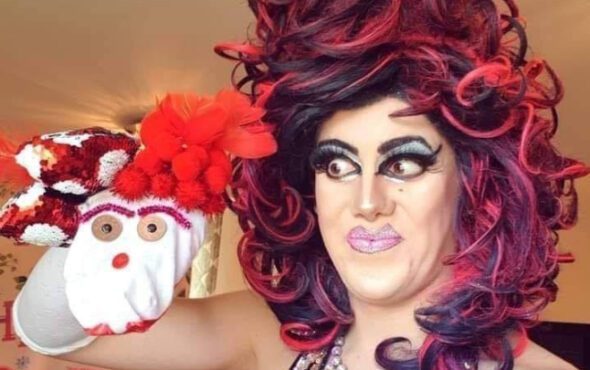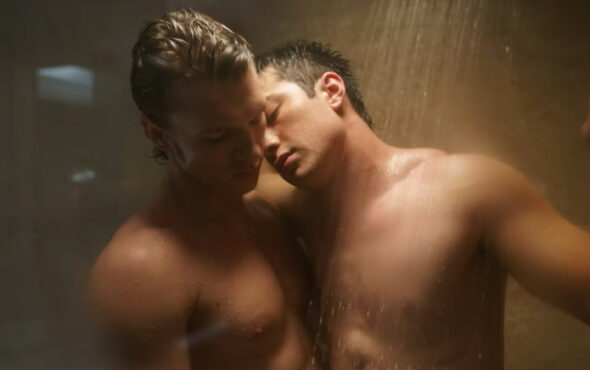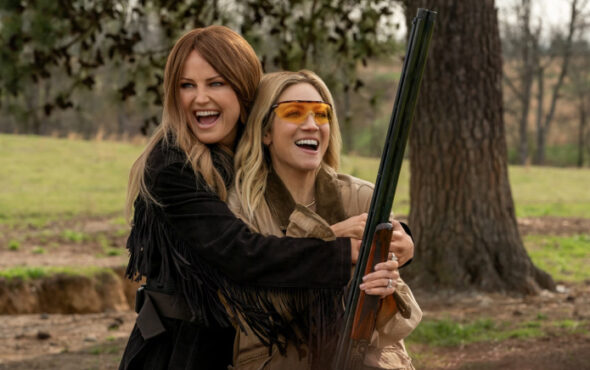
Children’s storytime sessions led by drag queens are growing in popularity in countries from the United States to Japan – while fierce opposition campaigns are also gathering pace.
Drag Queen Story Hour events aim to introduce children to diverse role models and LGBTQ+ people. Critics say they sexualise and confuse young audiences, claims which have been strongly rebutted by organisers.
With protesters picketing events, some in Britain and the United States have had to bring in extra security or have been cancelled altogether.
Here’s all the details:
What is a Drag Queen Story Hour?
Drag queen performers read children’s books to young audiences and their families. The books that are read sometimes also feature LGBTQ+ characters.
The events – usually hosted at public libraries and bookshops – are typically aimed at children aged between three and 11.
The first event was founded in San Francisco by LGBTQ+ author and activist Michelle Tea in 2015. Tea has said she came up with the concept as a child-friendly way to introduce her young son to LGBTQ+ culture.
“Children love larger than life, magical characters, and drag queens have the biggest hearts and most creative minds,” Tea told the Thomson Reuters Foundation.
The events have since spread across the United States and to countries including Britain, Sweden, Canada, Japan, and Australia. Each local or national chapter is individually managed and funded.
What’s the criticism?
Drag storytimes have drawn protests, while several Republican politicians in the United States have pledged to take action to prevent them altogether.
Critics say that drag acts are inherently sexual, and that nursery and primary school-aged children are too young to be introduced to LGBTQ+ topics.
Some of the protests have been linked with far-right political groups, such as the Proud Boys, and Gays Against Groomers, which opposes what it describes as the “sexualisation” of children and trans healthcare for minors.
In Britain, demonstrations against the readings are largely organised and supported by far-right nationalist groups Independent Nationalist Network (INN) and the Patriotic Alternative.
“For most parents … the one wish they have for their children is to preserve their innocence,” said one flyer opposing drag storytime events, distributed by INN.
“Anything that is sexualised is a threat and direct danger to that.”
In 2019, a drag queen who took part in a storytime event in Houston, Texas, was barred from future events after it emerged the performer had been convicted of sexually assaulting a child aged under 14 in 2008, according to Newsweek.
The case has been cited by U.S. protesters, who say it illustrates the risks posed to children by drag performers.
Republican state representatives in Texas, Florida and Missouri have pledged to ban drag storytimes, citing safeguarding concerns.
A failed 2020 law in Missouri planned to block anything deemed to be “age-inappropriate sexual material” in a library, with fines and jail time for those who refused to comply.
In June, Florida representative Anthony Sabatini said he would propose legislation to terminate the parental rights of adults who take their children to drag events.
What do supporters of drag storytime events say?
Supporters say the shows are age-appropriate and that critics are motivated by homophobia, drawing on long-standing prejudices that equate being gay with pedophilia.
“Drag Queen Story Hour UK wants to show the world that being different is not a bad thing,” a spokesperson for the group said. “By providing imaginative role models for children to look up to, we can change the world book by book.”
All their performers go through criminal records checks and receive training on working with children, the group said.
Some events in Britain and the United States have been defended from opposition by counter protesters.
“I feel it’s important for my little girl to meet lots of different people in life and have a really good understanding of diversity,” said Rebecca Rickman-Jenkins, 42, who took her 5-year-old daughter to a drag story event in the city of Norwich.
“There is no adult content in any performance … Children love them because they are enthusiastic.”
What is the upshot?
Drag story hour organisers and performers have said they will not be deterred by the criticism.
“It does upset me to see that these people still exist … but what I would say is that these people are also the drive behind what I do,” Sab Samuel, who founded Drag Queen Story Hour UK and performs as Aida H Dee, told the BBC in August.
Protesters also said they would not be backing down.
“Our group wouldn’t be here if there weren’t all these issues,” said INN co-founder Joe Strutt.
“We want our kids to be left alone to exist.”
With drag storytime events seeing swift growth in recent years, the row is not likely to die down soon.
“The protests (are) just so sad,” said story hour founder Tea.
“I feel very bad for anyone whose hearts and minds are so cranky, paranoid and impoverished that they would feel motivated to try to crush something so joyful.
“But they’re giving all of us parents a lot of teaching moments, which is valuable.”
Reporting by Lucy Middleton.
GAY TIMES and Openly/Thomson Reuters Foundation are working together to deliver leading LGBTQ+ news to a global audience.



